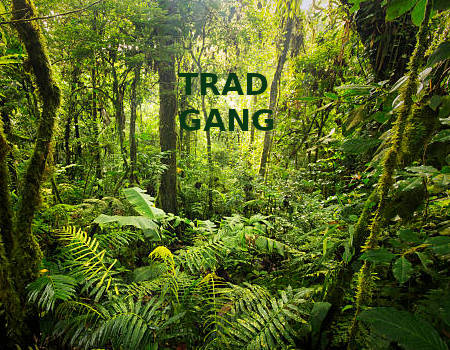CAPE TOWN, South Africa - South Africa's environment minister announced long-awaited restrictions on hunting Tuesday, declaring he was sickened by wealthy tourists shooting tame lions from the back of a truck and felling rhinos with a bow and arrow.
Dismissing threats of legal action by the hunting industry, Marthinus Van Schalkwyk said the new law would ban "canned" hunting of big predators and rhinos in small enclosures that offer them no means of escape.
In addition, lions bred in captivity would have to be released into the open for at least two years before they could be hunted. Van Schalkwyk said a previously proposed six-month delay would not give lions enough time to develop self-defense instincts.
"Hunting should be about fair chase ... testing the wits of a hunter against that of the animal," he told a press conference. "Over the years that got eroded and now we are trying to re-establish that principal."
South Africa is famous as home to the Big Five animals _ lion, leopard, rhinoceros, elephant and buffalo. Its flagship Kruger National Park attracts hundreds of thousands of camera toting visitors every year. Some 9,000 privately owned game farms and other government-run reserves also offer visitors a taste of the wild.
But it has become also become a choice destination for wealthy gun-toting tourists willing to pay more than $20,000 to take home a "trophy" lion or rhino's head.
The new law, which enters into force June 1, bans the hunting of animals that have been tranquilized. It outlaws bows and arrows for big predators and thick skinned animals like rhinos - one of the practices singled out by Van Schalkwyk as particularly appalling. And it bans the use of vehicles to chase the animal until it is too tired and terrified to flee for its life.
"To see people who are half drunk on the back of a bakkie (truck) hunting lions which are in fact tame animals is quite abhorrent," Van Schalkwyk _ himself an avid hunter _ told The Associated Press.
But conservationists said the law would be difficult to enforce and did not go far enough because it stopped short of an outright ban on intensive breeding of lions, leopards and other predators.
"The big thing for South Africa would be to stand up and say 'we are conservation leaders and this industry is immoral and unethical and we are not going to allow it,'" said Louise Joubert of the San Wildlife Trust, which campaigned for tougher regulations.
She said it made little difference whether a lion was freed for six months or two years before being hunted because once it had got used to being reared and fed by people, it was hard to break that trust.
Joubert said there should be an outright ban on intensive breeding projects, which often remove cubs from the mother at birth so the lioness mates more quickly, and often destroy female cubs as male lions fetch a higher trophy price.
The South African Predator Breeders' Association, which was set up last year to lobby against the regulations, has warned that breeders may be forced to euthanize the estimated 3-5,000 lions they have reared if they are unable to offer them to foreign hunters and can no longer afford to feed them.
"We have asked for an outright ban," said Joubert. "If it means that four to five thousand lions have to be euthanized, it would be a tragic day but it is the only way for this country to get a grip, so be it."
Earlier this year, the breeders' association threatened legal action against the government to claim for compensation. Association officials did not return phone calls asking for comment Tuesday.
However, the Professional Hunters' Association of South Africa, whose members accompany foreign clients, said it welcomed the new regulations as a chance to clean up the image of the South African hunting industry by clamping down on lion breeders who account for only about 3 percent of game farms.
"A small sector has given the whole industry a bad name," said Stewart Dorrington, president of the hunting body.
Up to 7,000 foreign tourists visit South Africa each year on hunting safaris, each spending roughly $18,000, Dorrington said. About 55 percent of hunters are from North America and the rest from Europe and other countries.
Van Schalkwyk said the regulations marked the start of a "clean up of the hunting industry" and would in due course be extended to other animals like antelope species.
Hunting is an integral part of South African life because of its cultural traditions and importance to the economy.
"We gave our firm intention more than two years ago to deal with the issue," he said. "Many of the lion breeders thought they were empty threats and did not take it seriously. This is a practice that cannot be defended in any way."



